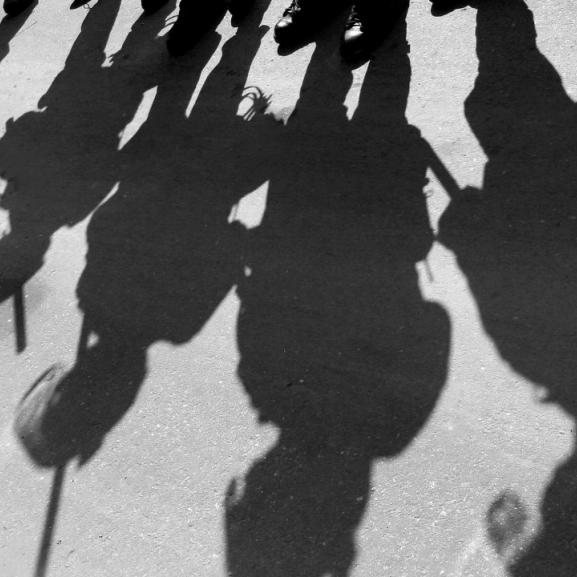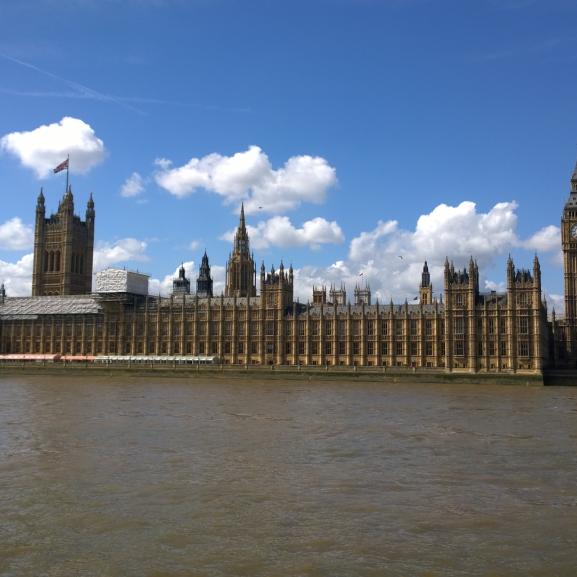Seeking sanctuary, finding destitution
Foodbanks are shining an unforgiving light on modern poverty, revealing a callous asylum system and a neglectful government. In this latest Expert Blog Series entry, Oxfam's Sanctuary in Wales Project Coordinator, Vicky Goodban, explores what happens when you experience cuts or delay to your benefits and the physical and mental impacts of living in poverty.
Foodbanks have become the desperate symbol of austerity Britain.
Over half a million people had to make use of an emergency food package last year in the UK, as incomes were squeezed and prices rose. A failing social security system and an increasingly scarcity of well paid jobs has led to a 78% rise in food bank inquiries over the last six months. Today, hundreds of thousands of people are only able to put food on the table thanks to the generosity and kindness of their fellow citizens.
If these figures weren’t shocking enough on their own, they are especially jarring given the constant flow of ‘comforting stories’ we’re fed about the state providing enough for us to get by when times are tough.
And yet, despite this recent spike in numbers, depending on voluntary hand-outs is not a new experience for everyone: refugees and asylum applicants in the UK know all about having to rely on charity as a means of survival. As detailed in Freedom from Torture’s new ‘Poverty Barrier’ research, the UK asylum system has been creating poverty for a long time.
Many of those refugees and asylum applicants forced to flee their homes in search of safety have already been through the trauma of dislocation, war, persecution, and in some cases, torture.
Once they have sought protection in the UK, few of these vulnerable individuals and their families will have the means to support themselves without the right to work. Almost all will be reliant on the Home Office’s inefficient and haphazard asylum support system. However, for many, delays in accessing this support means destitution – no money for food and nowhere to live. Even when an asylum claim is accepted, the transition from asylum support to finding work or receiving mainstream benefits (the ‘move on’ period) often triggers more delay, and the very real threat of abject poverty.
Oxfam’s partners in the Sanctuary in Wales Project see cases like this every day. Recently, a woman given leave to remain ran out of cash before the weekend. She knew about food banks but had just missed the weekly distribution day. With nothing in the cupboard, she went hungry for three days and could only feed her young children because a local charity worker gave her cash to buy milk and bread. The family managed to get a loan which helped see them through, only to lose their first week of benefits when they had to instantly pay back the loan.
In another example, delays from the Home Office meant an older diabetic woman was forced to rely on handouts from a community drop-in and church. She ‘sofa surfed’ for weeks because although she was officially recognised as a refugee, she did not fall into the priority category for social housing. She had no money to eat properly and fainted at the drop-in centre.
Even those who do get receive cash support, it is sometimes not enough to feed themselves and their families. Crucially, subsistence payments for people claiming asylum have not increased in line with the cost of living. This means that as food prices rise, their payments are actually decreasing in real terms – an experience shared by those people on job seeking benefits and with the same results; namely, desperation, hunger and reliance on charity.
The need for so many British citizens to resort to food banks over the last few years has been rightly recognised as a source of national shame and of failure. But that this is an all too familiar experience for those mired in the labyrinth of the asylum system is unacceptable. Having to seek asylum is traumatic enough without the added physical and mental impacts of poverty enforced by a callous system. As Freedom from Torture’s ‘Poverty Barrier’ report makes clear, the affect can be devastating.
The Sanctuary in Wales Project is funded by the Big Lottery Fund (Wales).
You can help tackle poverty in the UK by joining Oxfam in calling for an inquiry into the links between benefit sanctions and hunger.





